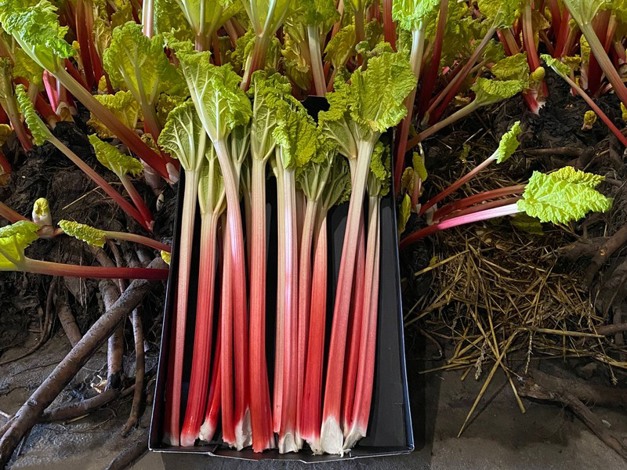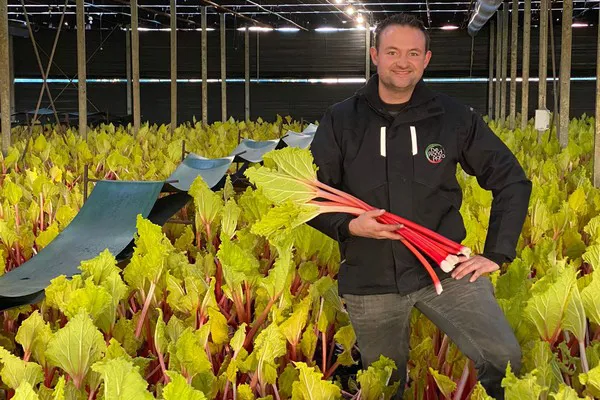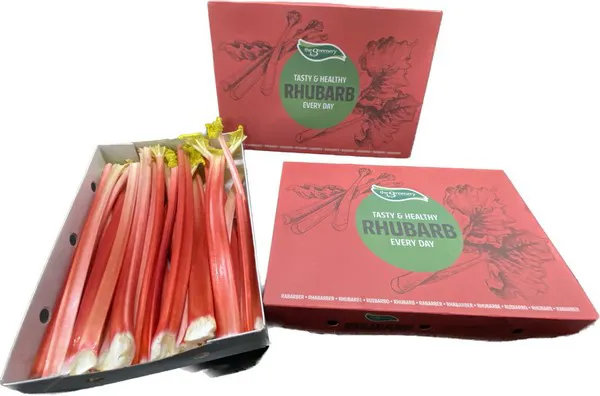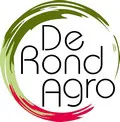The new forced rhubarb season has started at De Rond Agro in the Netherlands, and the first harvesting began last week. "As soon as outdoor cultivation in Europe starts winding down, and there are slightly more quality problems, we enter the market," begins Rob de Rond.

He is generally satisfied with this year's quality. "The rhubarb grew and developed well in the summer, though the first harvest's color was somewhat lighter. However, now that temperatures are dropping again, that seems to have recovered for the second harvest. Their quality is great, and our yields are similar to other years. But last week's continuing hot weather created more and more challenges."
Climate change affects Rob, too. "The warm temperatures mean we struggled with the greenhouse climate to keep the plants healthy. It simply didn't cool down enough at night for a long time. We've had hot days later in the year before, but then it cooled down to 9 or 10°C at night. I've never experienced such sustained heat in October," says Rob.
"It's something we'll have to deal with from now on. Greenhouse climate has always been vital in forced rhubarb cultivation, but it will only become more so in the coming years. How can we keep the greenhouse situation optimal? It's an important issue because, with the current climate, it's easy to ruin your crop."

Getting in with retailers
The grower has not had such issues this season yet, so Rob is optimistic about the new season. His first rhubarb entered day trading at The Greenery this week. "We're in the start-up phase and began the second crop this week. There's increasing planting overflow," he explains.
"That always benefits continuity. Especially in the current market, where there seems to be less supply than in previous years. Last year, prices weren't so good around this time, so several growers made other choices, like starting harvesting later or setting their sights on spring."
"For us, however, it's the perfect time to start. With The Greenery, we begin immediately with UK retail programs," De Rond explains. The United Kingdom, the US, and Canada are the biggest markets for forced rhubarb around this time. "So, this is the time to start since the outdoor season is ending. Demand is sufficient in the first few weeks, despite the product being more expensive."

Niche market
According to Rob, rhubarb remains a niche market. "Presently, there aren't such volumes being produced that everyone in Europe and beyond has to turn to rhubarb. It's for enthusiasts. It's a slightly pricier product, but those who love rhubarb will keep buying it. The same goes for higher-end restaurants, especially in countries like the UK and the US, where rhubarb is a bit more established than in, for example, the Netherlands. Supply and demand keep the market nicely balanced," he points out.
Challenges remain for rhubarb too, but, says Rob, the social trend around airfreight is, so far, not one. Many Dutch retailers have stopped flying vegetables in, but that is not yet an issue in Canada or the US. "They're also looking at it, and I occasionally discuss it with our exporters who work in Canada or the US."
"They say those countries are far more used to far-off transport. There, air freight is sometimes more efficient and cheaper than trucking in goods from, say, Mexico. I dare not say what the situation will be like in ten years. The world, and therefore social opinion, may be very different then, and we must constantly keep an eye on it, though it's not yet causing a lag in demand," Rob concludes.
For more information:
Rob de Rond
De Rond Agro
127 Gors
4741 TC, Hoeven, NL
Tel: +31 (0 0 165 312 314
Email: info@derondagro.nl
Website: www.derondagro.nl
